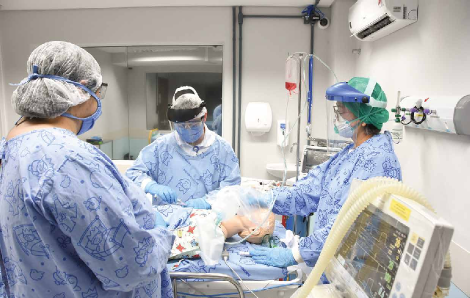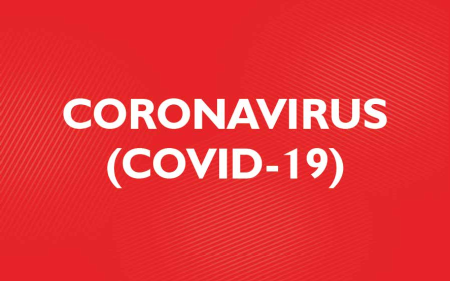Research Institute team integrates worldwide project on coronavirus
Main purpose is to understand why some people develop severe illness even without being in the risk group

A team from the Pelé Pequeno Príncipe Research Institute is part of the “COVID Human Genetic Effort”, a worldwide effort of researchers who seek to understand, through genetic analysis, why some people develop severe forms of COVID-19 even though they are not part of the group risk. “It is a collaborative project that brings together immunologists from all over the world. We want to understand how and why some people are more susceptible than others to develop the severe form of the disease, as we see more and more deaths of young and apparently healthy people,” explains the project coordinator at the institution, Carolina Prando.
Two Brazilian teams are taking part in the initiative. The team of immunologist Carolina will coordinate the work in the three states of the South region. “As winter is more severe here and, we have many respiratory infections caused by other viruses in this time of the year, we imagine that the demands of this region will be greater,” she says. The other team is from the University of São Paulo (USP) and will bring data from other Brazilian states.
The researchers will sequence and analyze the genes of patients who need ICUs. “In our case, we will collect material from patients at the Pequeno Príncipe Hospital and also from inpatients in ICUs of other hospitals in the South region who want to participate in the project with us,” she explains. The results will be compared with data from researchers from other parts of the world.
“The work will have an immediate effect, which is the identification of patients who suffer from already known innate immunity errors. In these cases, these patients will be able to receive specific guidelines and tailormade treatments for their immunological diagnosis, in addition to the treatment they are receiving for COVID-19,” she observes. In Brazil, for example, the estimate is that there are about 160,000 people with innate immunity errors. However, just over 2,000 are diagnosed.
“Furthermore, when we compare our results with the ones from other centers around the world, we are able to find patterns that reveal new diseases, more quickly,” highlights the researcher. “With this project we want to contribute to the construction of knowledge that will allow us to understand why the immune system of some people is more susceptible than others for severe cases of COVID-19. Besides, new strategies for the prevention and treatment of the disease may be developed, avoiding so many deaths,” she considers.

Fight against coronavirus
The Research Institute’s participation in the “COVID Human Genetic Effort” is one of the contributions of the Pequeno Príncipe in the fight against the new coronavirus. The institution is also prepared for this confrontation in its health assistance unit, Pequeno Príncipe Hospital, where all elective procedures (consultations and scheduled surgeries) have already been postponed, so that the institution has the physical capacity to serve boys and girls with COVID-19.
However, the suspension of elective activities shows a major financial challenge for Pequeno Príncipe. “A significant part of these procedures is covered by the supplementary health system (Health Insurance Plans), where we have a small operating margin. With the suspension, we are estimating an additional deficit between R$ 15 million (US$ 2.8 million) and R$ 20 million (US$ 3.8 million) this year, in addition to the approximately R$ 33 million (US$ 6.2 million) that we have accumulated in deficit every year due to the gap in the remuneration of procedures by the Public Health System,” explains the corporate director of the Complex, José Álvaro da Silva Carneiro.
In addition, the Hospital is facing the worldwide price increase in the supplies, especially in Personal Protective Equipment (PPE). There is also the need to increase the number of employees working at the front line of care, since all those who are classified as a risk group were preventively removed from their activities. “All of this is affecting our financial planning and, more than ever, we need the support of our investors,” says the executive director of the Hospital, Ety Cristina Forte Carneiro.
More
Pequeno Príncipe staff receives intense training to fight the coronavirus
Purpose is to ensure the safety of professionals and patients
COVID-19 Report
Until 10 a.m. on April 11, the Pequeno Príncipe Hospital has investigated 61 cases of patients with suspected disease, four of which were confirmed




